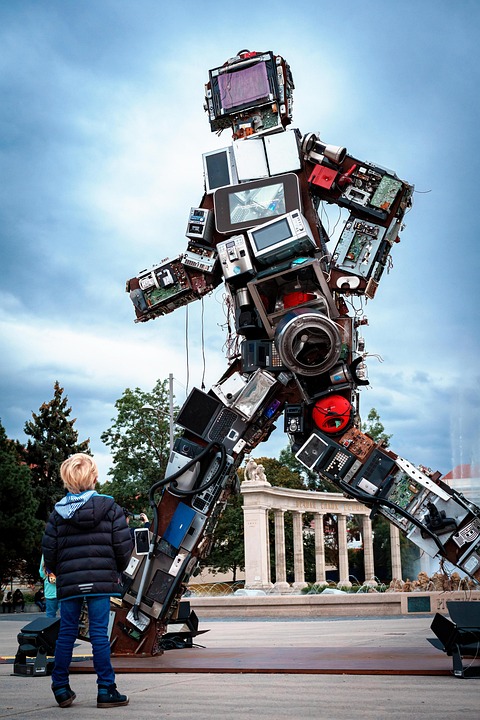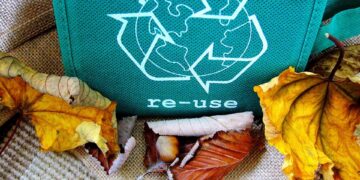Turning Trash into Treasure: The Power of Recycling Programs
Recycling has become an essential part of our daily lives as we strive to reduce waste and protect the environment. By turning trash into treasure through recycling programs, we can not only save valuable resources but also create new opportunities for economic growth and sustainability. In this article, we will explore the benefits of recycling, how recycling programs work, and how you can get involved to make a positive impact on the planet.
The Benefits of Recycling
Recycling offers a wide range of benefits, both for the environment and the economy. By recycling materials such as paper, plastic, glass, and metal, we can reduce the amount of waste that ends up in landfills, conserve natural resources, and lower greenhouse gas emissions. Recycling also helps to create jobs in the recycling industry and stimulate economic growth by turning waste into valuable commodities.
Environmental Benefits
One of the main reasons why recycling is so important is its positive impact on the environment. When we recycle materials instead of throwing them away, we can conserve natural resources such as trees, oil, and minerals. By reducing the demand for new raw materials, we can help to protect forests, wildlife habitats, and ecosystems that are threatened by deforestation and mining.
Economic Benefits
Recycling also offers significant economic benefits by creating new opportunities for businesses and job growth. The recycling industry provides employment for millions of people around the world, from waste collectors and sorters to recycling plant workers and manufacturers. By recycling materials and turning them into new products, we can stimulate economic activity and support sustainable development.
How Recycling Programs Work
Recycling programs are designed to collect, sort, and process recyclable materials from households, businesses, and other sources. These materials are then transformed into new products through a series of steps that involve sorting, cleaning, melting, and remanufacturing. The most common materials that are recycled include paper, plastic, glass, metal, and electronic waste.
Collection
The first step in a recycling program is the collection of recyclable materials from homes, businesses, and public spaces. This can be done through curbside collection programs, drop-off centers, or recycling bins located in public areas. Some communities also have special events or drives to encourage recycling and educate the public about the importance of waste reduction.
Sorting
Once the recyclable materials are collected, they are sorted into different categories to ensure that they can be processed efficiently. Materials such as paper, plastic, glass, and metal are separated using automated sorting machines or manual labor. Sorting is a crucial step in the recycling process to ensure that each material can be recycled properly and turned into new products.
Processing
After the materials are sorted, they are processed through various techniques such as shredding, washing, melting, and remanufacturing. Paper and cardboard are pulped and turned into new paper products, while plastic is melted and molded into new plastic items. Glass and metal are melted down and reshaped into new containers, packaging, and building materials.
How You Can Get Involved
There are many ways that you can get involved in recycling programs and make a positive impact on the environment. Here are some tips on how you can reduce waste, recycle materials, and support sustainable practices in your community:
Reduce, Reuse, Recycle
One of the simplest ways to reduce waste is to follow the 3 R’s: reduce, reuse, and recycle. Start by minimizing your consumption of single-use items such as plastic bags, bottles, and packaging. Instead, opt for reusable products and containers that can be used multiple times. When you do need to dispose of items, make sure to recycle them properly to keep them out of landfills.
Support Recycling Programs
You can also support recycling programs in your community by participating in curbside collection, drop-off events, or recycling drives. Many municipalities offer recycling services for households and businesses to make it easy for people to recycle their materials. By taking advantage of these programs, you can help to divert waste from landfills and promote a more sustainable way of living.
Educate Others
Another way to get involved in recycling is to educate others about the benefits of waste reduction and recycling. Share information about recycling programs, sustainable practices, and eco-friendly products with your family, friends, and colleagues. By raising awareness about the importance of recycling, you can inspire others to take action and make a difference in their own communities.
Conclusion
Recycling programs play a crucial role in turning trash into treasure by reducing waste, conserving resources, and creating new opportunities for economic growth. By getting involved in recycling initiatives and supporting sustainable practices, we can make a positive impact on the environment and build a more sustainable future for generations to come. Together, we can harness the power of recycling to transform trash into treasure and create a cleaner, greener planet for all.
So, let’s all do our part to recycle, reduce, and reuse for a brighter and more sustainable tomorrow.











